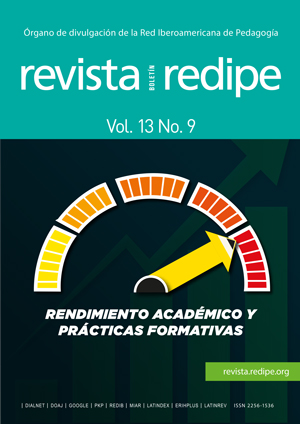Virtual consulting on health speciality topics through the application of the echo model
Main Article Content
Keywords
Consulting, Virtual, Specialties, Health care
Abstract
Currently, there is a significant impact of information and communication technologies (ICT) in health and medical education. The ECHO model advisory program, implemented in Ecuador since 2017, has achieved positive progress in learning, professional satisfaction, perception of the quality of medical service and the evolution of treated patients. OBJECTIVE: To evaluate the virtual guidance provided through the application of the ECHO model (teleclinics), on topics of health specialties, in relation to the care provided to patients, based on the perception of professionals. METHODOLOGY: A quantitative, descriptive, cross-sectional, field and non-experimental study was developed. Through the ZOOM platform, clinical cases of various health specialties were socialized. The specific population consisted of 45 participants who completed the structured survey in 15 dimensions, applied through free digital support. Relative frequencies or percentages were included in the tabulation, as well as the average of responses provided for each option on the Likert scale, and the standard deviation was calculated for each parameter. RESULTS: From the participants’ perception, 86.86% noted an affirmative impact on the quality of medical care and patient evolution. The responses were more dispersed in the categories involving external factors. CONCLUSIONS: Virtual guidance through the ECHO project provided support for learning and continuing education, highlighting the importance of the competencies demonstrated by the specialist counselors in its execution.
References
Chan Chi, G., Rodríguez, J., & Zaldívar , M. (2024). La tutoría virtual en la formación de profesionales de la educación durante la pandemia. Tecnología, Ciencia y Educación, 28, 89-114. doi:https://doi. org/10.51302/tce.2024.19293
Cohen, H. (2019). Proyecto ECHO: ¿es posible democratizar la atención médica en América Latina? Acta Gastroenterológica Latinoamericana, 49(1), 2429-1119. Recuperado el 20 de Julio de 2024, de https://www.redalyc. org/journal/1993/199360275001/
De la Calle, L., Barba, M., Choca, E., Gualpa, G., & Aguilar, D. (2022). Impacto del Proyecto ECHO en la percepción profesional de mejoramiento de la atención de salud. Journal of Science and Research, 7(4), 1–19. Recuperado el 10 de Julio de 2024, de https:// revistas.utb.edu.ec/index.php/sr/article/ view/2821
De la Calle, L., Barba, M., Choca, E., Gualpa, G., Calderón, E., & Yépez, F. (2023). Impacto del proyecto echo en la evolución de los pacientes. Revista Boletín REDIPE, 12(8), 99-115. doi:https://doi. org/10.36260/rbr.v12i8.1992
De la Calle, L., Barba, M., Choca, E., Gualpa, G., Calderón, E., & Yépez, F. (2024). Impacto del proyecto echo en la desmonopolización de la medicina. Revista Boletín REDIPE, 13(4), 159- 176. doi: https://doi.org/10.36260/rbr. v13i4.2117
De la Calle, L., Barba, M., Choca, E., Ortiz , L., & Gualpa, G. (2020). Capacitación virtual y satisfacción profesional mediante la implementación de teleclínicas del proyecto echo en Ecuador. REVISTA BOLETÍN REDIPE, 9(11), 214-227. Recuperado el 18 de Junio de 2024, de https://revista.redipe.org/index.php/1/ article/view/1126/1023
Fuentes, A., Copaja, C., Rivarola, M., & Miranda, B. (2022). Percepción de la enseñanza virtual exclusiva en estudiantes de. An Fac med, 83(3), 246-8. Recuperado el 15 de Julio de 2024, de http://www. scielo.org.pe/pdf/afm/v83n3/1025- 5583-afm-83-03-00246.pdf
García, H., Navarro, L., López , M., & Rodríguez, M. (2014). Tecnologías de la Información y la Comunicación en salud y educación médica. EDUMECENTRO, 6(1), 253- 265. Recuperado el 16 de Junio de 2024, de http://scielo.sld.cu/pdf/edu/ v6n1/edu18114.pdf
Iglesias, I. (2022). La telemonitorización como herramienta de cuidado para pacientes crónicos. (IDG, Ed.) Recuperado el 05 de Julio de 2024, de CIO, FOUNDRY: https://www.cio.com/article/2087323/latelemonitorizacion-como-herramientade-cuidado-para-pacientes-cronicos. html
Linares, L., Linares, L., & Herrera, A. (2018). Telemedicina, impacto y perspectivas para la sociedad actual. Universidad Médica Pinareña, 14(3), 289-303. Recuperado el 09 de Julio de 2024, de http://galeno.pri.sld.cu/index.php/ galeno/article/view/550
Márquez, J. (2020). Teleconsulta en la pandemia por Coronavirus:. Revista colombiana de Gastroenterología, 35, 5-16. Recuperado el 10 de Julio de 2024, de http://www.scielo.org.co/pdf/rcg/ v35s1/0120-9957-rcg-35-s1-00005.pdf
Monraz, S., Pacheco, A., Castorena, A., Benítez, R., Thirión, I., López, E., . . . Pérez, J. (2021). Telemedicina durante la pandemia por COVID-19. Neumología y cirugía de tórax, 80(2), 132-140. doi:https://doi.org/10.35366/100996
Nozar, M., Fiol, V., Greif, D., Ben, S., Briozzo, L., & Cohen, H. (2017). Cáncer de cuello uterino, estrategias innovadoras en la descentralización del conocimiento y su manejo. Proyecto ECHO Uruguay. Revista Médica del Uruguay, 33(1), 128- 141. Recuperado el 17 de Junio de 2024, de http://www.scielo.edu.uy/scielo. php?script=sci_arttext&pid=S1688- 03902017000100128&lng=es&tlng=es
Omaghomi, T., Elufioye, O., Akomolafe, O., Anyanwu, E., & Odilibe, I. (2024). A comprehensive review of telemedicine technologies: past, present, and future prospects. International Medical Science Research Journal, 4(2), 183- 193. doi:https://doi.org/10.51594/imsrj. v4i2.811



